Solve for one, extend to many: Successes at the 10th Annual Accessible Technology Symposium
Solve for one, extend to many: Successes at the 10th Annual Accessible Technology Symposium
The 10th annual Access for All: Accessible Technology Symposium took place on Friday, October 24, 2025. Around 130 attendees gathered in the Shriver Center to celebrate the symposium’s decade of service to the important work of creating inclusive spaces and classrooms at Miami University.
Humanist approach to game design: When all can play, everyone wins
The keynote speaker for this auspicious event was Belinda Worley, senior product manager for Xbox (Microsoft). Worley, a passionate leader who advocates for universal design in gaming and helps Microsoft execute on products that make gaming better for people of all abilities, spoke about Microsoft’s universal gaming design journey—starting with thinking about these concepts from the beginning, instead of just trying to retrofit things after the fact.
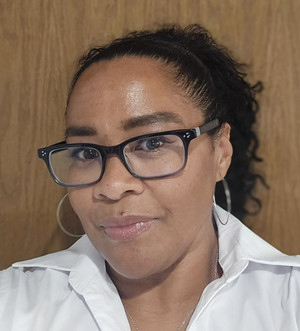
“We’re trying to bridge the conversation about disabilities,” Worley said. “There are situational, temporary, and permanent disabilities, and access is something that everyone in the world can use.”
Sid Karki, a senior double-majoring in Computer Science and Mathematics, interned on Worley’s team at Microsoft in 2024. This connection led to Worley being invited to speak at the 10th annual Accessible Technology Celebration, where her deep commitment to accessibility was evident.
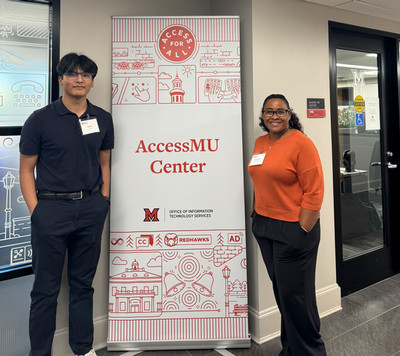
Her talk highlighted her journey from studying at Embry-Riddle Aeronautical University to building a career in aerospace engineering. Before joining Microsoft, she worked in engineering and leadership roles at Boeing and held senior project management positions at Amazon.
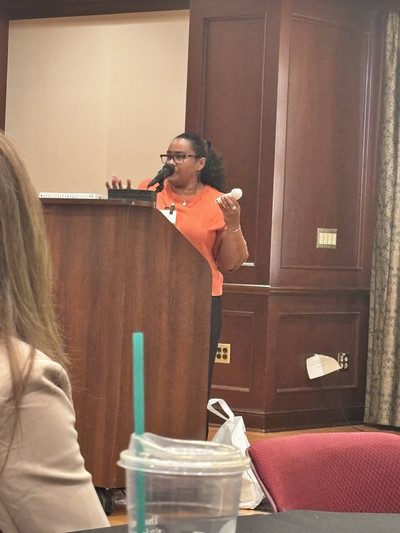
“I really enjoyed the humanist perspective that [Worley] had,” said Joanna Kellogg, project management specialist. “I don’t have any background in gaming or product development in that way, but the business aspects of developing these products with accessibility in mind was really interesting.”
Worley spoke about the key areas of need in accessible gaming: texts and visuals; audio; controls and input; and cognitive or emotional support. All of these things are important aspects of making games inclusive, accessible, and safe for all people.
“We’re designing for human diversity. We work through empathy and perspectives by taking a step back to make sure we’re developing for all areas,” she said.
“Solve for one, extend to many,” she stated, echoing a sentiment that Microsoft’s leadership champions.
Access for all and all for access
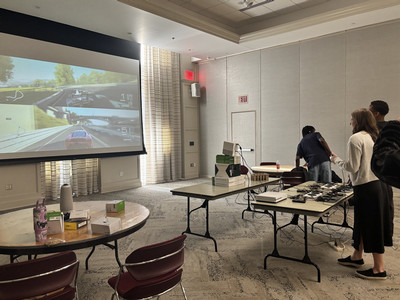
The rest of the sessions for the day built on this concept of extending to many, with workshops focusing on creating and supporting inclusive classroom experiences with various university-supported tools like Grackle, PREP, and Ally; the principles of universal design and disability justice; and even on working with ADHD as an adult.
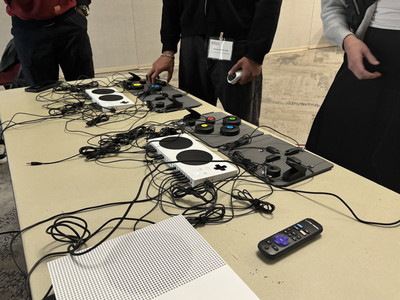
“Not all disabilities are visible,” said ElizaMarie Quinn-Alger, accessible technology coordinator for AccessMU. “Not everyone shares their needs, but we should still do our best to make things accessible.”
The event organizers even included a space where folks could try out some accessible gaming devices and controllers.
Don’t forget to mark your calendars for the 11th annual Accessibility Symposium: October 23, 2026! We’ll see you then.
